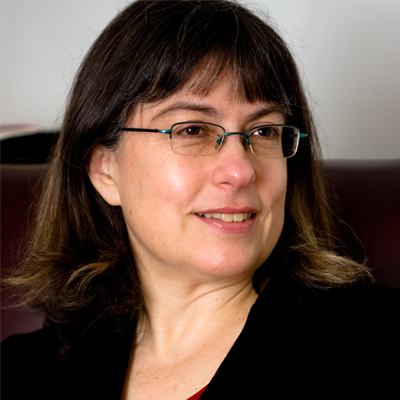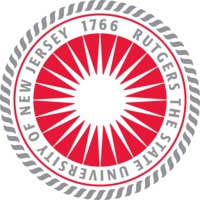Uncovering the racism as well as the gender bias underlying financial structures and credit allocation
Why is the term “minority” linked with “low income”? In particular, what explains the ongoing impoverishment of so many urban (and inner-ring suburban) black neighborhoods? What role do inherently racialized and gendered beliefs about enterprise, credit worthiness, debt, development, and entrepreneurial energy play in keeping black communities poor -- especially given that such beliefs, which form the bedrock of legislative policy for Democrats and Republicans, lag far behind the economic realities of our increasingly financialized economic system?
These were the issues confronting the deeply knowledgeable and committed activists who innovated community development banking as a solution to black communities’ economic vulnerabilities. Dr. Beryl Satter, Professor of History at Rutgers University, aims to uncover and explain, in clear and engaging language, the complex relationships that existed between racism, sexism, and capitalism in the late 20th century by studying the history of ShoreBank (1973-2010), the bank holding company that pioneered community development banking. Particularly interested in the role of banks and of credit in perpetuating or undercutting racism and sexism, Dr. Satter will elucidate both structural economic conditions and how they impacted and were impacted by ShoreBank’s leaders and allies, men and women who tried their best to navigate and transform biased economic policies and practices. By doing so, she hopes to illuminate and ultimately help eliminate barriers to true community development in our contemporary moment.
ShoreBank was founded by a group that included civil rights activists, women's rights activists, progressive bankers and urban planners. It sought to reverse mainstream banks’ denial of credit to black communities. It sought to revitalize communities that had been decimated by deindustrialization. Finally, it was a pioneer in women’s development banking. The struggles the founders went through in order to implement their vision can thus provide unique insight into the relationships among racism, sexism, and capitalism. Interviewing hundreds of people from wealthy bankers to civil rights activists and community members, Dr. Satter serves as a translator of their complex experiences, creating a compelling narrative about ShoreBank’s forty-year battle against barriers to equal credit access that is necessary for success in a capitalist order. In her successful book Family Properties, Dr. Satter elucidated the role of financial institutions played in devastating black neighborhoods. Now, Dr. Satter uncovers the economic and political systems that block attempts to challenge unequal access to credit, in order to highlight the ongoing barriers to black community empowerment.
Dr. Satter’s current research includes:
- Elucidating the Relationship between Racism and Capitalism: Dr. Satter is synthesizing the sociological, economic, urban, political, and financial history of the late 20th century in order to accurately situate ShoreBank and its policies. ShoreBank, which tried to uncouple racism and capitalism, was hailed by Former President Bill Clinton as a model for community development. It became the model for the Riegle Community Development and Regulatory Improvement Act of 1994, which was intended, among other things, to spur the creation of ShoreBank-like institutions throughout the country. Dr. Satter is studying the impact made by ShoreBank’s approach, as well as the compromises that were made along the way. She has been interviewing scores of people involved in all aspects of this effort, including those involved in the formation and running of the bank, in order to bring this complex narrative to life.
- Analysis of the politics of Entrepreneurship, Community Development and Reinvestment: Dr. Satter analyzes more broadly what the terms “entrepreneurship,” “community development.” and “reinvestment” have meant in practice for both the people attempting to achieve these goals, and for the politicians who promoted legislation ostensibly aimed at smoothing their way. Rhetoric about community development through lending and entrepreneurship was lauded across the political spectrum, but the back-room realities of interest group politics at the municipal, state and federal level told a very different story. Dr. Satter’s work uncovers the economic and political dealings that undercut popular political discourses about economic growth. She sets these rhetorical and political battles against the background of the brutal economic reorganization that has created the economic inequalities we see today. Because our political language is so outdated, we desperately need to think about class, race, gender, and capitalism in a manner that takes into account new economic realities. Dr. Satter’s history of ShoreBank’s efforts to use reinvestment and entrepreneurship to create a just and inclusive form of community development -- and her uncovering of the obstacles that blocked their way -- enables us to really understand the ways that Americans’ underlying faith in self-help obfuscates contemporary economic realities, and particularly the harsh workings of racism and sexism in a seemingly objective “market” capitalism.
- Archival Research: Dr. Satter is immersed in intensive archival research. Starting with the 90 boxes of archival materials on ShoreBank, she will also branch out to the papers of intersecting financial and political organizations that worked closely with ShoreBank’s leaders. Primary source research is being supplemented with hundreds of interviews. With this research, Dr. Satter will be able to draft a full book outline by early 2016. She will create a narrative that clearly represents structural economic issues as they affect all Americans, especially African-Americans and women of all races.
Bio
Dr. Beryl Satter is a historian and writer at Rutgers University. She won the Liberty Legacy Award for best book in civil rights history from the Organization of American Historians, the National Jewish Book Award in History from the Jewish Book Council, and the Honor Book award from the New Jersey Council for the Humanities for her second book Family Properties: Race, Real Estate, and the Exploitation of Black Urban America (Metropolitan Books, 2009). The book was also a finalist for the J. Anthony Lukas Book Prize and the Ron Ridenhour Book Prize, and was chosen as one of the top ten books of the year by the New York Times and The Washington Post. This year, Dr. Satter won a 2015 Guggenheim Memorial Foundation Fellowship for her work on ShoreBank.
Dr. Satter grew up in Chicago, Skokie, and Evanston, Illinois. Her father died when she was six years old, leaving her mother to raise her and her four siblings. Her mother’s struggles to keep their family afloat left her with a keen sensitivity to the economic struggles of women and others who lived outside of mainstream U.S. culture. Satter’s first book, Each Mind a Kingdom, was a history of late nineteenth-century women who achieved economic independence through creating new religious movements. Her second book, Family Properties, was in part a biography of her father, attorney Mark J. Satter. Mark Satter had fought real estate speculators who exploited black home buyers by selling them properties on harsh terms and at grossly inflated prices in the late 1950s and early 1960s. His papers revealed a world of activists – attorneys, journalists, community leaders, religious leaders, and even the occasional reform organization -- who focused on the structural causes of racism and economic injustice.
Dr. Satter builds on this work for her third book project, which focuses on uncovering and explaining the relationships among racism, sexism, and capitalism. Through her research, Dr. Satter hopes to illuminate the barriers of true community development in our contemporary moment.
Outside of research, Dr. Satter enjoys doing yoga and spending time with her 20 lbs terrier mutt who keeps her grounded.
For more information, visit http://www.ncas.rutgers.edu/beryl-satter
In the News
The New York Times
The Washington Post
John Simon Guggenheim Memorial Foundation
Poverty & Race Research Action Council
Videos
Awards
Guggenheim Memorial Foundation Fellowship, 2015
Bridge to Brick City Award for advocacy on behalf of LGBT Youth in Newark, NJ, 2014
Board of Trustees Award for Excellence in Research, 2011
Rutgers University
J Anthony Lukas Book Prize Finalist, 2010
National Jewish Book Award, 2010
Liberty Legacy Award, 2010
Organization of American Historians


